Artificial Intelligence Art and Aesthetics Research Group (AIAARG)
日本語 / English
The 26th AI Art & Aesthetics Research Meeting
“What If AI Composed for Mr. S? -2”
* Record
-
The 26th AI Art & Aesthetics Research Meeting
“What If AI Composed for Mr. S? -2”
- Sep 29 (Sun) 14:00-19:30
- The 1st Lecture Room, Central Build., Faculty of Fine Arts at Tokyo University of the Arts
The 26th AI Art & Aesthetics Research Meeting, a symposium featuring five speakers, will be held as the second part of the project in conjunction with the ongoing AIAARG exhibition “What If AI Composed for Mr. S?” (The Container, Nakameguro, through Oct 7) at the 1st Lecture Room, Central Build. of the Faculty of Fine Arts at Tokyo University of the Arts in Ueno, on Sunday, September 29th at 14:00.
Yuji Numano, Toshio Nakagawa, Motoharu Kawashima, Ryota Akasaka and Takéshi Tsuchiya will be invited to speak. In addition, Kiyoshi Furukawa will also take the stage in the general discussion.
By connecting the Mamoru Samuragochi ghostwriter case of five years ago with the current topic of artificial intelligence in creation, this is a must-see and must-hear session that questions the fundamentals of composition.
From the content of the speech submitted, we can read the possibility of a big battle.
Please be sure to attend and participate in the general discussion.
Outline
-
[Title]
- The 26th AI Art & Aesthetics Research Meeting “What If AI Composed for Mr. S? -2”
-
[Date]
- September 29 (Sun), 2019. 14:00-19:30 (door open 13:30)
* Followed by a social gathering together with the panelists at a near-by restaurant
- September 29 (Sun), 2019. 14:00-19:30 (door open 13:30)
-
[Venue]
- The 1st Lecture Room, Central Build., Faculty of Fine Arts at Tokyo University of the Arts (12-8 Ueno Park, Taito-ku ,Tokyo)
https://www.geidai.ac.jp/english/access#UenoCampus
- The 1st Lecture Room, Central Build., Faculty of Fine Arts at Tokyo University of the Arts (12-8 Ueno Park, Taito-ku ,Tokyo)
-
[Lecture]
-
Yuji Numano (Musicologist. Professor of Toho Gakuen School of Music, Tokyo.)
Toshio Nakagawa (Composer. Pianist.)
Motoharu Kawashima (Composer. Associate Professor of Kunitachi College of Music. Vice President of The Japan Federation of Composers Inc.)
Ryota Akasaka (Researcher of the Robot Law. Special Researcher of National Institute of Advanced Industrial Science and Technology.)
Takéshi Tsuchiya (Composer. Associate Professor of Tokyo College of Music)
Hideki Nakazawa (Artist. Representative of AIAARG.)
* After the lecture, we will set a time for a general discussion.
* Kiyoshi Furukawa (Composer. Professor at Tokyo University of the Arts) will also participate in the general discussion.
* We welcome the filming and live-tweeting and broadcasting of lectures and discussions. We will release the recorded video at a later date.
* Language: Japanese
-
Yuji Numano (Musicologist. Professor of Toho Gakuen School of Music, Tokyo.)
-
[Entrance Fee]
- Free
-
[Organizer]
- Artificial Intelligence Art and Aesthetics Research Group (AIAARG)
Lecture
“What Is It to 'Compose' ?”
Yuji Numano (Musicologist. Professor of Toho Gakuen School of Music, Tokyo.)-
- The Japanese Copyright Act defines a copyright work as “an expression” of “an idea or sentiment” “in a creative work.” Of course, this definition applies to musical works as well. But if artificial intelligence creates music, how are the concepts of “thought or sentiment” and “expression” to be dealt with? Or how will they suffer alterations? It is difficult to provide a direct answer to this question. Nevertheless, I would like to examine some examples of issues such as shogi and AI, composition applying the results of cognitive psychology, issues surrounding music and plagiarism (or ghostwriting), and contemporary music and originality, as well as intertwining them with the issue of writing in Western music.
- * Musicologist, Yuji Numano's main research area is music of the 20th and 21st centuries, with a wide range of interests including “Music and War.” Books “Edgar Varèse: Portrait of a Lone Sharpshooter” (Shunjusha) and others. Professor at Toho Gakuen University. (* by AIAARG)
https://twitter.com/numanoyuji 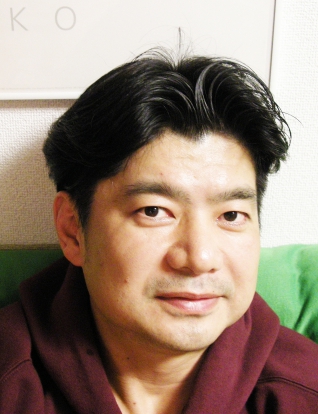
“The Relationship Between the 'Vibrations' (Frequency) of the Creator and the Level of Art.”
Toshio Nakagawa (Composer. Pianist.)-
- Most people agree that an artist's state of mind is reflected in the content of his or her work. The person who created such a masterpiece must have a beautiful mind. This myth, instilled in the mind of a child, is the origin of the eternal discrepancy between everyday life and the artistic act. By the way, is there a “vibration” involved in art in the first place? Furthermore, is it possible for an AI? This report will attempt to make an argument for “truth” in accordance with a theme that is impossible to prove.
- * Toshio Nakagawa, composer, pianist won the first prize in the 10th Anniversary International Competition of “MUSIC TODAY '82” (composed and performed by himself), and was awarded many prizes at the Japan Federation of Musicians in Advertising.Director of the Japan Contemporary Music Association. (* by AIAARG)
https://twitter.com/t_nakagawa_jscm 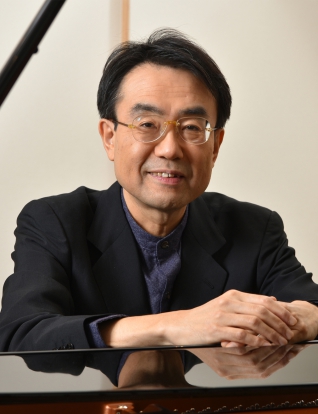
“Can AI Composers Be Viable?”
Motoharu Kawashima (Composer. Associate Professor of Kunitachi College of Music. Vice President of The Japan Federation of Composers Inc.)-
- AI has already implemented composition support today. In the near future, professions whose demand will drop sharply may include arrangers and composers based on established styles. However, from the point of view of a composer/arranger, there are many tasks that can be determined to be impossible for AI, and it is unlikely that AI will surpass the insatiable exploration and high level of creativity in the future. This kind of sensibility is the creativity required of today's composers, isn't it? AI makes a sharp distinction between truly creative “compositions” and those that are not, but the struggle of demarcation line between the two continues endlessly. This presentation provides a concrete example of creativity that cannot currently be surpassed by AI.
And if we define a true composer only as one who can continue to work ahead of such a level of the competition, it will lead to the proof that a true AI composer cannot appear forever. (Mr. N's work, in that sense, also leads to the argument that it was not replaceable by AI composers.) - * Motoharu Kawashima, composer who advocates “action music” and develops creative works based on the “structure of laughter.” Awarded many awards including the Akutagawa Award for Music Composition (1997). Associate professor at Kunitachi College of Music. Lecturer at Shobi Gakuen University and Tokyo College of Music. Vice President of the Japan Composers' Association. (* by AIAARG)
https://ameblo.jp/actionmusic 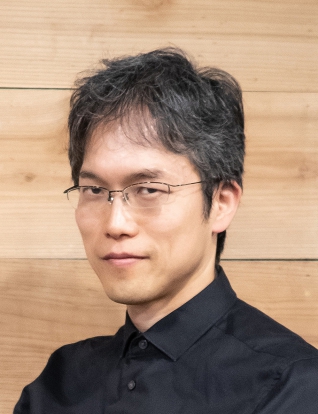
- AI has already implemented composition support today. In the near future, professions whose demand will drop sharply may include arrangers and composers based on established styles. However, from the point of view of a composer/arranger, there are many tasks that can be determined to be impossible for AI, and it is unlikely that AI will surpass the insatiable exploration and high level of creativity in the future. This kind of sensibility is the creativity required of today's composers, isn't it? AI makes a sharp distinction between truly creative “compositions” and those that are not, but the struggle of demarcation line between the two continues endlessly. This presentation provides a concrete example of creativity that cannot currently be surpassed by AI.
“The Creation of AI and the Law”
Ryota Akasaka (Researcher of the Robot Law. Special Researcher of National Institute of Advanced Industrial Science and Technology.)-
- The utilization of AI is spreading to various sectors of society, and there are germination of its use in the creative field as well. There is academic debate and policy consideration as to what legal implications and what legal protections may be applicable to such creations.
However, since the current state of AI is to support specific human activities, its legal meaning becomes problematic in terms of how the user contributed to the creation. But in the future, there may appear an AI that begins to create without human contribution. It is also important to discuss what legal protection should be given to its creation in such cases. This presentation will provide an overview of future legal issues from a current legal perspective. - * Ryota Akasaka, researcher of the Robot Law, co-translated the book “Robot Law” by Ugo Pagallo. Contributor to the catalogue of the AI Art & Aesthetics Exhibition “What If AI Composed for Mr. S?” Research Fellow at AIST. DJ, flutist. (* by AIAARG)
https://scrapbox.io/legaldesign-open/赤坂亮太氏(第1回ゲスト) 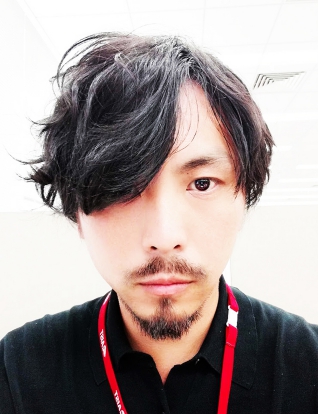
- The utilization of AI is spreading to various sectors of society, and there are germination of its use in the creative field as well. There is academic debate and policy consideration as to what legal implications and what legal protections may be applicable to such creations.
“The Way Forward for CAO(Composition Assistée par Ordinateur)”
Takéshi Tsuchiya (Composer. Associate Professor of Tokyo College of Music.)-
- Even before the recent theory of AI evolution, there have been many discussions and studies on “composition by (or with the help of) machines”, and various collaborations have been carried out in various places.
The “ILIAC Suite” 1957 is a masterpiece that was the starting point. In this presentation, I would like to talk about how “machine composition” has evolved (or degenerated) to this day, through a realization of the process by which composers project advanced technology into their scores as compositional thought. - * Composer Takéshi Tsuchiya studied at IRCAM. His 2005 article examined “The Future of Composers and Compositional Support Tools.” Awarded the 2008 Valentino Vacchi International Composition Prize (Rome). Associate professor at Tokyo College of Music. (* by AIAARG)
https://researchmap.jp/ttsuchiya8/ 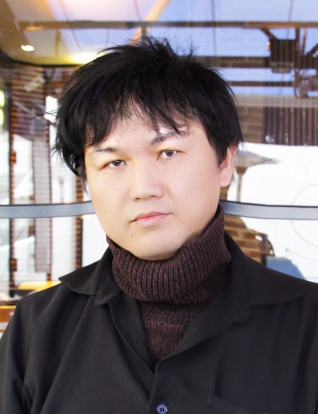
- Even before the recent theory of AI evolution, there have been many discussions and studies on “composition by (or with the help of) machines”, and various collaborations have been carried out in various places.
“About the AI Art & Aesthetics Exhibition 'What If AI Composed for Mr. S?' - 2”
Hideki Nakazawa (Artist. Representative of AIAARG.)-
- What is composition? This is not exactly the same as the question “What is creation?” in art and literature. This is because classical music and its extension, contemporary music, at least, encompasses a system of score-notation. In other words, music creation has been stably dichotomized, with the exception of some convinced criminals, into “musical notation = composition” and “interpretation = performance.”
However, the Samuragochi case provided a perspective that destabilized even the composition as well. The existence of artistic instructions suggesting that this was not just a case of substitutional composition, dichotomized the notion of composition in terms of person as well: “invention = instruction” and “interpretation = notation.”
If we assume that the degree of creativity is “composition > performance,” the consequence would be “instruction > notation.” And if we introduce the concept of an AI composer, it would be “objective function writer.” - * The artist name Hideki Nakazawa irregularly written in angular Japanese syllabary is used from the time of medical school enrollment. After Silly CG, Methodicist Manifesto, New-Methodicist Manifesto, Manifesto of Artificial Intelligence Art and Aesthetics. Bitmap 3D Patent. He has written “Art History: Japan 1945-2014.” Former juror of The Japan Media Arts Festival.
https://www.aloalo.co.jp/nakazawa/ 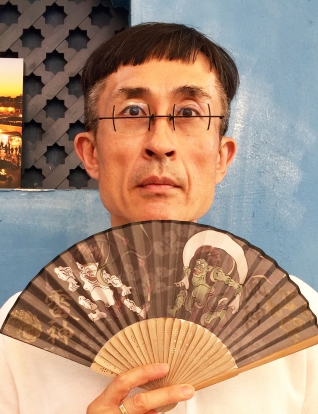
- What is composition? This is not exactly the same as the question “What is creation?” in art and literature. This is because classical music and its extension, contemporary music, at least, encompasses a system of score-notation. In other words, music creation has been stably dichotomized, with the exception of some convinced criminals, into “musical notation = composition” and “interpretation = performance.”
Image
Link
- Announcement via email (Japanese)
https://www.aloalo.co.jp/nakazawa/2019/0923a_j.html - Event page on Facebook (Japanese)
https://www.facebook.com/events/2999129453645870/
(This page was translated by Mari Fujii & Masami Fujii.)